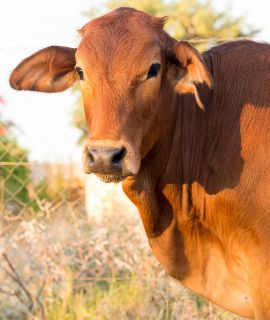Nigeria’s dairy industry holds tremendous potential, yet low milk production remains a challenge that hampers its growth. Unlike many countries, Nigeria relies heavily on imports to meet its dairy needs, despite having vast resources and potential for local production. Addressing the issue of low milk output is crucial not only for achieving self-reliance in milk supply but also for improving the livelihoods of local farmers. At TAFKIN BAUNA FARMS LIMITED, we advocate a multifaceted approach to enhance milk production, focusing on genetics, nutrition, and management practices.
A key driver of low milk production is the poor genetic potential of the local cattle breeds. These animals are often not optimized for high milk yield. One immediate solution is the introduction of cross-breeding programs that combine the resilience of local breeds with the higher milk output characteristics of exotic breeds. This can gradually increase production without compromising the animals’ adaptability to local conditions. Furthermore, educating farmers about selective breeding choices can result in significant long-term improvements in herd productivity.
Nutrition plays a pivotal role in milk production, yet many Nigerian cattle suffer from inadequate feeding regimes. For a quick impact, improving cattle nutrition through balanced feed has proven effective. Introducing high-quality forage, supplements, and concentrates can enhance milk yield significantly. By using locally available resources and developing region-specific feed formulations, farmers can reduce costs while improving the nutritional status of their herds, leading to healthier cows and better milk output.
Another aspect to consider is herd management practices. Currently, many livestock farmers do not have access to adequate veterinary services, nor are they aware of best practices in herd management. Providing training and support for improved animal husbandry, including regular health checks and disease prevention strategies, can lead to healthier cattle and increased milk production. Access to veterinary services, coupled with farmer education, ensures that farmers can effectively manage their herds and maximize productivity.
Finally, substantial gains in milk production require support from both the private sector and government. Investments in infrastructure such as milk collection centers, cold storage facilities, and distribution networks can create efficient supply chains from farm to market. Additionally, policies that support local dairy farmers with subsidies or financial aid can provide the resources they need to invest in better practices and technologies. Collaboration between stakeholders is essential to foster an environment where the dairy industry can thrive and Nigeria can move towards self-sufficiency in milk production.
Overall, a concerted effort focusing on improving genetics, nutrition, management, and infrastructure can substantially boost milk production in Nigeria. At TAFKIN BAUNA FARMS LIMITED, we believe that with the right strategies and support, Nigeria’s dairy sector can realize its full potential, contributing to national food security and economic development. By embracing these solutions, we can empower local farmers and ensure that Nigerian households have access to fresh, locally-produced milk.








